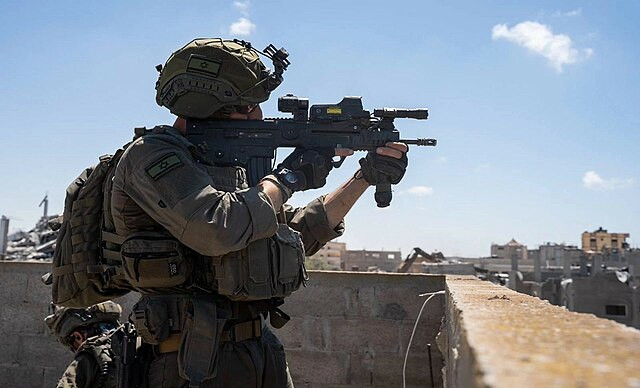The Israeli Defense Forces (IDF) are investigating an airstrike in Beit Lahiya, northern Gaza, that reportedly killed nearly 100 people, according to claims from Hamas authorities. The overnight strike, which targeted a residential building, has raised concerns over the accuracy of the casualty figures, with the IDF urging caution about information coming from Hamas sources. "The IDF calls on the media to be careful with information published by Hamas, as has been proven in several previous events," said a military spokesperson. The strike occurred in a combat zone where evacuation orders had been issued earlier in the month.
Gaza's Hamas-run Civil Defense agency initially reported that 93 people were killed in the airstrike, including women and children. While the IDF has not yet confirmed the casualty figures, it stressed that its operations are targeted at militants, and efforts are made to avoid civilian harm. "We emphasize again that this is an active combat zone," the IDF said, noting that the region remains a focal point in Israel's military campaign against Hamas militants in Gaza.
The airstrike in Beit Lahiya comes amid Israel's broader offensive in northern Gaza, which has been ongoing for more than three weeks. The military has focused on targeting Hamas strongholds in the region, including the Jabaliya refugee camp, where hundreds have been killed, and tens of thousands of residents have been displaced. Israel claims it is targeting Hamas infrastructure, but the heavy civilian toll has drawn widespread international criticism. Hospitals in Gaza are overwhelmed with casualties from the strikes, and medical resources are running thin.
The conflict has expanded beyond Gaza, with tensions escalating in neighboring Lebanon, where Hezbollah has announced a new leader following the death of its longtime chief, Hassan Nasrallah, in an Israeli airstrike last month. Hezbollah's Shura Council named Sheikh Naim Kassem as Nasrallah's successor. Kassem, a founding member of Hezbollah and its deputy leader for more than three decades, has vowed to continue the group's aggressive stance against Israel. Hezbollah's attacks on northern Israel have intensified, with rocket barrages killing civilians and prompting Israeli retaliatory strikes. On Tuesday, Hezbollah fired dozens of rockets into northern Israel, killing at least one person in the city of Maalot-Tarshiha.
Israel's military actions in Gaza and Lebanon have drawn international attention, with concerns about further escalation in the region. Meanwhile, Israel faces criticism for passing legislation that could restrict the operations of the United Nations Relief and Works Agency for Palestine Refugees (UNRWA). The agency is the largest humanitarian provider in Gaza, offering critical services such as healthcare and education to Palestinian refugees. Israel accuses UNRWA of having ties to Hamas, a claim the agency has denied.
The suspension of UNRWA's activities could severely hamper humanitarian efforts in Gaza, according to aid groups. James Elder, a spokesperson for UNICEF, warned that without UNRWA's involvement, Gaza's humanitarian system could collapse. "This decision could lead to the collapse of the humanitarian system in Gaza. We rely heavily on UNRWA to distribute essential supplies, including vaccines and food," Elder said. Israel's new laws could further restrict aid deliveries to the north of Gaza, a region already devastated by the ongoing conflict.
The conflict in Gaza, which began in October 2023 after Hamas militants launched a surprise attack on Israel, has now claimed over 43,000 Palestinian lives, according to local health authorities. The majority of Gaza's population, around 2.3 million people, has been displaced, many forced to move multiple times as the fighting intensifies. Israel's retaliatory strikes have targeted Hamas militants and infrastructure, but civilians, including women and children, continue to bear the brunt of the violence.
In addition to the ongoing military operations in Gaza and Lebanon, tensions between Israel and Iran remain high. Iran, a key supporter of both Hamas and Hezbollah, has been involved in direct exchanges of fire with Israel in recent months. The conflict shows no signs of abating, and both sides are preparing for a prolonged struggle, with winter months offering little respite from the heavy casualty counts.






